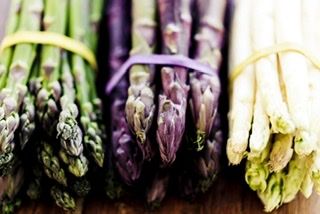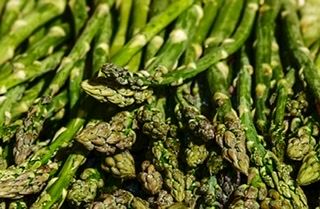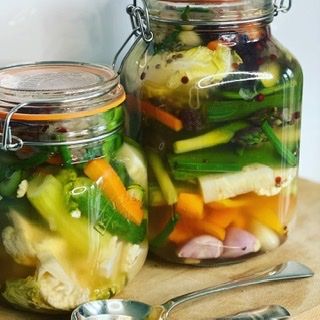A nutritional wonder


Our expert chef Tim Bilton may still have some time to wait until the football starts again however his passion for cooking with Asparagus can kick-start now that Spring is well and truly here.

I always look forward to the arrival of the first locally grown asparagus in spring. With the same excitement as new life in the fields of new-born baby lambs, blossoms on fruit trees knowing they will be bearing fruit later in the year, young tender shoots of spring vegetables. (And the start of the football season).
It’s the first sign as a chef that spring has truly sprung.
Any farm shop worth their salt will be selling locally grown asparagus from Yorkshire at this time of year. Not the imported asparagus from a far flung country. The taste is so remarkably different that even the unrefined of palettes will taste the incredible difference.
With only a short season of approximately eight to ten weeks I use it with everything.
With a glut of spring vegetables especially with restaurants not taking the very best grade. I love to spend time pickling the vegetables so we can easily eat them in a salad at anytime of the year. (I’m turning into my Grandma).
This seasons asparagus has had a rather slow start can you remember the rain and floods that we had at the start of the year. But now it absolutely rocketing so fill your shopping baskets.
Planting
Once asparagus is planted it take about four years to produce a crop. But saying that, that very same asparagus plant will produce a crop for about twenty-five years.
One head or plant can produce around 20 to 25 asparagus spears per season. In the height of the season asparagus can grow about 10cm in 24 hours.
Asparagus will stop being picked on The 16th June to allow the asparagus beds to rejuvenate for next season.
Some of the best asparagus suppliers to look out for:
Spilmans and Sandhutton
What Does Asparagus Taste Like?
The taste of asparagus will vary with the season and variety. Generally, it's an earthy flavour, similar to broccoli, and almost like an intensely flavoured green bean. White and purple varieties are milder.
Nutrition and Benefits
Asparagus is a nutritional wonder. It's an excellent source of fibre, cholesterol free, and low in calories and fat. Among the micronutrients found in the vegetable, it's highest in vitamin K and vitamin B9 (foliate). You'll also get a good portion of your daily-recommended vitamins A, C, and E, as well as phosphorus, potassium, and protein from a single serving.
There are many additional benefits to eating asparagus. It can aid in lowering blood pressure, assist digestion, and aid in eye and hair health. Add to that the potential anti-aging properties and its promotion as an aphrodisiac, and there's little reason to avoid eating this vegetable. However, you will notice that eating asparagus makes your urine smell rather pungent. This is perfectly normal and harmless, caused by sulphurous compounds in the vegetable.
Over the coming weeks I plan to share a few of my favourite Asparagus dishes for you to enjoy this season.
